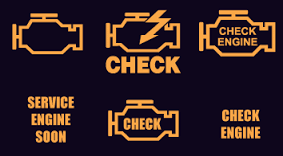What to do when a check engine light turn on then off
Take Action: Steps to Follow When Your Check Engine Light Turns On and Then Off
The check engine light (CEL) is designed to alert you when there’s a problem with your car’s engine or emissions system. However, the CEL doesn’t always behave in a straightforward manner. Sometimes, it may come on briefly and then turn off by itself, leaving you wondering what happened and whether you should be concerned. Understanding the potential causes of this phenomenon can help you determine whether it’s something that requires immediate attention or a minor issue that can be monitored.
What causes a check engine light come on and then go off?
Your vehicle’s computers are constantly running tests on the various systems. These tests are referred to as Readiness Monitors or just Monitors. Some of the monitors run the entire time the engine is running. Those are called continuous monitors. Other readiness monitors are non-continuous.
So a monitor may run tests and find that the system
fails under the driving conditions when the test is performed, but pass the test the next time it runs. That can cause the check engine light to come on due to the first failed test and then go off when the repeat test passes. However, the trouble codes from the failed first tests are stored in the computer as “History Codes” and they can be accessed using a scan tool or code reader.
During these various tests you can encounter a check engine light on and off situation.
What to do about a check engine light that comes on and then goes off?
Get the current and history codes read and then diagnose and fix the problem to make it stop.
What are some examples of continuous and non-continuous monitors?
These can be either type. It’s up to the carmaker to decide.
Misfire(s)
Fuel System
Comprehensive Component
These are common non-Continuous Monitors
Catalytic converter testing
Evaporative (EVAP) System testing
Secondary Air System testing
Oxygen (O2) Sensor testing
Oxygen Sensor Heater testing
EGR (Exhaust Gas Recirculation) and/or VVT System
Posted on by Rick Muscoplat

